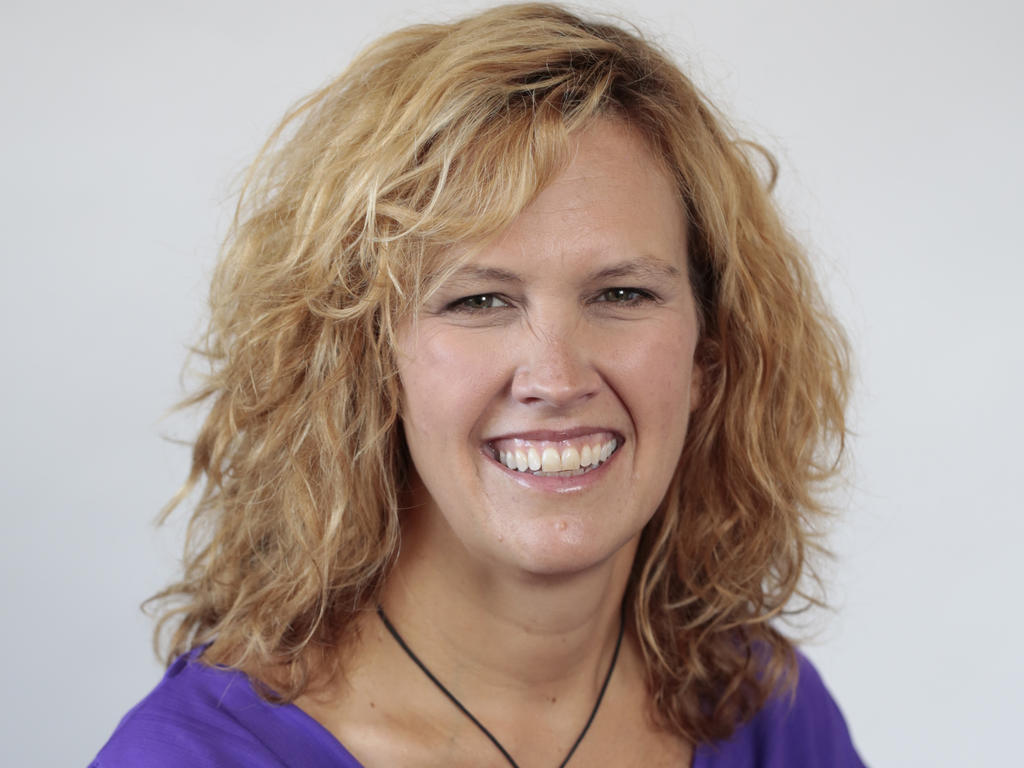Dr. Kelly Weeks, assistant professor of business, has been conducting research on generational differences—from Traditionalists to Millennials—in the workplace that could help managers as they design jobs, recruit employees, and foster career development.
Weeks, who also is a Rhodes psychology alumna, began this research in 2014. “I was getting complaints from business people about the work ethic of Millennials and the perception that they were only interested in time off or getting rewards without working hard,” says Weeks. “I knew plenty of Millennials, and I didn’t think that these perceptions described my students or people I knew, so I decided to do some research myself.”
In her studies, Weeks interviewed five employees from each generation, inquiring about how important meaningful work is for them, what they find meaningful in the job they currently do, what their ideal job would be, and whether they saw any generational differences in definitions of meaningful work. For the purpose of the study, generations were defined in the following way: Traditionalists (born during the years 1922-1945); Baby Boomers (1946-1964); Generation X (1965-1983); Millennials (1984-2002).
Weeks discovered that generations tend to stereotype each other. “Interestingly, every group said that the other generations are only in it for the money and they don’t care about meaning in their work. Traditionalists, Baby Boomers, and Generation X believe Millennials are most adept at technology, but that they feel entitled at work and do not work as hard as those from other generations.”
“When we asked about their definitions of meaningful work, the Traditionalists we interviewed said that meaning comes from challenging work that allows people to grow, and also from work that helps other people,” says Weeks. “Baby Boomers tended to focus on achieving goals slightly more than other factors of meaningful work. Generation X also thought accomplishing career goals was a key component of meaningful work, but they also focused much more than older generations on work-life balance. Millennials spoke more about having nice coworkers and helping others.”
After examining the results of the qualitative research, Weeks conducted a more quantitative study with a wider population of workers. As a foundation to describe the past research on meaningful work for her research, Weeks used the Lips-Wiersma and Morris (2009) model, which incorporates four quadrants: Developing and Becoming Self, Unity with Others, Expressing Full Potential, and Serving Others. She found that, regardless of stereotyping and conflicts among workers, each generation strives for intrinsic meaning in their jobs, and that Millennials do value meaningful work. They just define it differently from other generations.
Weeks’ holistic take on the findings is that recognizing the common desire for meaning across generations, as well as the differences in perceptions of meaning, can help employees overcome stereotypes and work together more effectively, which may, in the end, help each employee experience more meaning and well-being at work. “In the end, all generations are in it together—and for remarkably similar reasons,” she says.
Weeks’ research on generations in the workplace can be found in the Harvard Business Review, the Journal of Business Ethics and Equality, and Diversity and Inclusion: An International Journal. She also offers some solutions for helping different generations work with each other and says managers can:
- help employees understand how their jobs fit into the organizational mission
- have more open conversations and workshops aimed at recognizing the commonalities across generations, where employees discuss what constitutes meaning in their lives and work
- teach employees how to communicate across differences of all kinds
In addition, Weeks has done several workshops with an array of industries to help them better understand each other and explore how communication can improve across generations: “These workshops can be anywhere from a one-hour lecture to a half-day workshop. I haven’t done as much with the new iGen generation yet, but I’d like to start focusing on them some since they are now in college and entering the workforce.”
By Meg Jerit ’20
